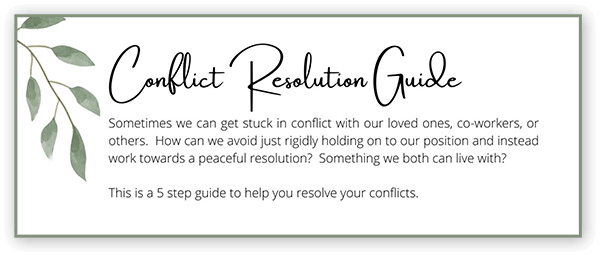Is it possible to recover from grief? That is the fear filled and pressing question many have when the worst possible things they can imagine happen. And sometimes after even expected losses.
The other night we watched a movie on Pureflix called “Saved by Grace.”
I don’t want to give the story totally away in case you may wish to see it too, but I want to tell you just enough to make a point about profound grief.
The event that launched 5 years of grief
At the heart of the story was a young police officer, already retired because he had had a tremendously traumatic event happen in his life. A successful businessman, who became a drug dealer on the side, was exposed and then brought to trial because of, in large part, this officer’s investigation.
On Thanksgiving, this convicted man had escaped a hospital ward where he had been taken because of cancer. With a gun, he came to the officer’s home to seek revenge. He was holding the wife at gunpoint when the police officer came home. In a resulting struggle, the gun went off and the officer’s wife was killed.
This began five years of unspeakable grief. His wife was dead. His career ended. Their son went to live with his grandmother and every Thanksgiving became a painful anniversary of horror in his own home – and an event for which he felt responsible.
Grief can be so unbearable
Just a little more about this fictional story. On the fifth anniversary of his wife’s death, this young officer prepared to take his life. He felt he could not endure the level of pain and disconnect that he was experiencing in his life. But, it is at this moment that a young woman named Grace enters the picture. With his interactions with her and others, and with God’s touch on it all, the man begins to live and eventually, love, again.
Our lives seldom feel as tidy as movies, but one thing is for certain. The depth of the pain portrayed in this story is something that many people do walk through. If you are reading this now because you’re going through incredible pain due to the death of a loved one or because of a major loss of another type, I am so sorry for your pain and suffering. I hope some things you will read here will bring you, at least, some help.

Does the grieving ever stop?
“Does the grieving ever stop?” is a reasonable question when you are in the thick of it. It can feel like you’ll never feel happy and whole again. Even with the passage of time, it can feel like the sudden triggers of your grief are always going to keep coming up and surprising you.
But, you will heal. You will feel better.
I want to offer five thoughts about the healing process of grief:
1. Your grief is unique.
Yes, our grief is similar to other people’s in that we feel deep sadness. We cry. Depression, deterioration in our relationships, withdrawing from life – there are so many similar things that people go through when grieving. You may have heard of something called the “5 Stages of Grief,” a theory of how grief progresses by Elisabeth Kubler-Ross. You can read about these stages (denial, anger, bargaining, depression, and acceptance) in an article from a church.
Her theory of the way grief progresses has been accepted by many people, but perhaps you are someone who will skip a stage she has mentioned. Or perhaps, these stages will occur in a different order or be intermingled. That’s just one way you are unique.
You are also unique in the timetable of how you heal from your grief. Someone may tell you, “I felt better in 6 months,” but you are still struggling and it’s been 2 years. You are unique and there is no timetable that is correct. However, for you to linger in long and enduring pain is not God’s desire for you. But, the bottom line is don’t compare your progress to someone else. How you grieve is personal to you.
2. Take care of yourself as best as you can.
When you are crushed by grief, your mind is numb, and you can hardly function, what becomes critical is to try to continue with the most basic self-care. Eat a little something – something that is nourishing. Try to rest. Get regular sleep as best you can. Get out and walk or do another form of exercise.
When you’re grieving and deeply depressed, you are not going to want to do these things, but try. One of the greatest blessings to us is to have people depending upon us, particularly young children. If we won’t get up and get going for ourselves, sometimes we’ll do it because of others. It keeps us alive.
My friend, Tom’s, journey through grief
I spoke with a dear friend, Tom, this morning, whose daughter was killed a couple of years ago by a gunshot wound to the head.
She had gone to an outdoor arts gathering in Kansas City – an innocent evening out. Stopping by a food truck, a bullet passed through a crowd, shot by a young man fighting with others. The bullet found Erin and she was dead within a few hours. Her life ebbed away as her boyfriend cradled her there on the street.
Not only have my friends just passed through the anniversary of their daughter’s tragic death (she was only 25), they had to appear in court for the sentencing of the young man who killed her this month. Through the testimony of family members as to what they had lost, the whole wretched memory was relived yet again.
But, Tom said to me, “I have a chance to demonstrate that NOTHING will push me to relapse. It is possible to even get through grief without taking a drink. Tom is a recovering alcoholic and now, a pastor of recovery. I interviewed him on my podcast, Rooted by the Stream. You can hear his story here.
3. In your grief, don’t isolate from others
You may feel you want to hide. Coming apart in front of others, having to join in socializing – all of that may be the last thing you want to do. But, it is so important to do your best to stay connected and let people love you.
People will be clumsy and say things that make you wince even as they are trying so hard to be compassionate. We aren’t perfect in wisdom.
When I was young at pastoring, I remember a church member calling me and telling me I needed to immediately go to an ER and minister to her friend whose 2 year old had just died from some sort of infection, possibly the flu. There was no expectation of death. The little one just didn’t make it through the night.
Yes, people may be awkward as they try to help
I had no idea what to say or do at that point as a brand new minister. My wrong notion was that I needed to have super wisdom and say the right things that would be immediately effective. Watching the sage ER nurse just quietly offer a Kleenex box and a glass of water and just a quiet touch to the devastated mother, was instructive. I watched and learned. Presence, just being there in love, means so much.
If someone is genuinely insensitive, well, yes, stay away from them in the deepest, darkest days of your grief. But, let others help you. My friend, author, Jessica Brodie, has written a beautiful blog article to help those who are trying to be comforters for grieving people. It is called, “Finding Jesus in the Heartache of Loss,” and you can find it here.
And, if you need a counselor to help you, don’t delay, find one.
4. Seek God for He will bring comfort
The Bible tells us that, “The Lord is close to the brokenhearted and saves those who are crushed in spirit.” Psalm 34:18
I know that sometimes, mistakenly, people feel that God is the one who has caused their tremendous grief. They, or others near them, may use language like this, “God took your loved one.” So, the blame gets laid squarely on God rather than on the circumstances of the death.
But, God does not have His hand on triggers or steering wheels. He is a God of love, and comfort, and life. We will begin and thrive in the process of healing and coming back to life ourselves if we will throw ourselves into His arms, utilize His words (in the Bible) and take advantage of every avenue of spiritual balm that we can.

5. Finally, help someone else as you grieve.
Interestingly, the turn around in the young police officer’s life in the movie, Saved by Grace, happened when Grace (the woman in the story) begged him for a ride and help in “getting home.” He was close to pulling the trigger of his gun when she pounded on his car window. Her need interrupted his plan for self harm. And, as he helped her, he began his journey back to life.
We don’t always feel like helping others on our best of days, but if we will choose to do some simple act of kindness even while grieving, it’s amazing how it stirs up the embers of life in us. Just joining a GriefShare or other support group for grieving people in a church may be the way to help and be helped.
Grief is so terribly, terribly hard, and particularly when a loss has been huge and unexpected. Going through it and coming out on the other side may feel impossible. But, in time, you will emerge. God is ever so ready to help.
A closing word from Isaiah 43:2-5
Here are some gentle words of comfort for the times when you’re not sure you’ll make it.
“When you pass through the waters, I will be with you:
and when you pass through the rivers, they will not sweep over you.
When you walk through the fire, you will not be burned; the flames will not set you ablaze.
For I am the LORD your God, the Holy One of Israel, your Savior…
You are precious and honored in my sight…because I love you…Do not be afraid, I am with you.”
Further Resources:
Hope for Those in Deep Pain | Jesus Heals the Brokenhearted
How Do You Live by Faith in Hard Times?
What to Do When You Feel Like Giving Up
Why Does God Allow Evil to Exist?
If you would like to receive highlighted posts, other faith building materials, and occasional free resources straight to your inbox, please scroll down and sign up for our email list! I would love to share more with you! Blessings!
Also, your comments are so valued! I love to interact with readers by phone, text, and email. I’m delighted to help/pray through having further conversation.


















Thank you for sharing this post Pam. Such an important issue to address since so many have lost loved ones during the pandemic. My son died over 30 years ago and although the day to day pain is gone, it stills interrupts my life on his birthday or anniversary of his death. But I can laugh and love and live again. Beautiful post.
Yvonne,
Thank you so much for reading and commenting. I understand what you are saying. I am so sorry for the loss of your son. I know it was devastating for you and though you have healed, anniversaries and even little things can bring back the memory of the searing pain of loss. But, I am so glad you can “laugh and love and live again.” You also help so many through your ministry and the wisdom you have gained.
This is such a timely post, Pam. Many people have lost loved ones to COVID, and this pandemic and the lockdowns have brought marriages to the brink and families to destruction. Ones we love and cherish have been impacted in this way and their lives forever changed. This has been a painful time of grieving for us. The one time I opened up about the grief we were experiencing, I was verbally attacked by a person I had just met. I know she was dealing with her own devastating grief, and so chalked her behavior up to that, but it shut me down. I no longer ask for prayer or share my needs with my church, but only with my trusted pastors. Being attacked when my heart was breaking and I was seeking prayer and support was devastating.
Oh, Melinda, my heart aches to hear this – that someone was cruel in their response to your vulnerability. I hate that. I am so glad you have trusted pastors to share your needs with, but it should not be this way. I pray that people with compassion will appear in your life who will enable you to open up again. God help us all to look more like Jesus than we do. Thank you, my friend, for reading and commenting. Bless you!